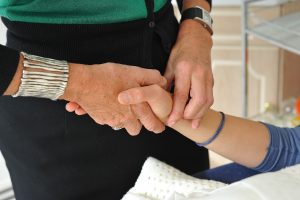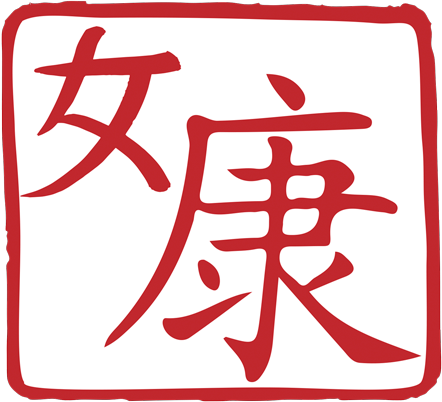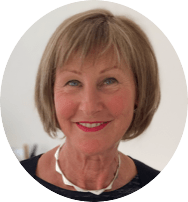Why can acupuncture be so important for women’s health and for male and female fertility? Find out from this insightful interview with Clinic Director Jill Glover
As Alma Vale Centre celebrates its 21st Anniversary, it is a perfect time to find out from our clinic director about her practice.
You are well known in the field of women’s health and acupuncture. Is this your main practice?
Yes, absolutely, it’s my passion. It’s what I love to do: bringing women from that place where their hormones aren’t working for them to a place where they are more balanced. For me, that is my joy in being a practitioner.
When you started practising acupuncture, did you have women’s health in mind from the outset?
When I qualified in 1985, I just wanted to build a practice. But I am very passionate about women’s health. Working with four male practitioners, women often came to me for treatment, so I quickly developed a women’s health practice. I loved what I could do for women.
Was there a lot of information on women’s health available at the time?
Then, IVF, for example, was in its early days. That has changed immeasurably, and so has the knowledge that acupuncture brings to it. Now there are online seminars and books, but when I started practising there was very little information available.
I hope to improve people’s knowledge of how to treat women so that more women can be served well.
Do you find there’s misunderstanding about women’s health?
Absolutely. No matter what a woman experiences, often, if tests come back as ‘normal’, GPs will say there’s nothing to be done: ‘I know there’s something wrong, but I can’t help you.’
In a way, acupuncturists, especially those who have completed postgraduate training, are much better equipped to work with complex gynaecological issues. They also, generally, have much more compassion and empathy.
What kind of conditions do you see women for? Mainly fertility?
Infertility, yes, but also painful periods and endometriosis, PCOS, menopausal syndrome and premature ovarian failure. Often women have miscarried, and they don’t come for treatment when they could have been helped, which I find terribly sad.
Is there much awareness among women of what acupuncture can do?

What saddens me is so many women come to me and say, ‘you’re my last resort’. As acupuncturists, we know that they didn’t have to go through all those years before they reached their last resort.
I’d love to be able to go into secondary schools to explain. Most young women don’t know how their period works.
You used to practise acupuncture during labour and childbirth. Do you still do that?
I don’t go into labour wards as much nowadays. But there is so much more we can do to help women have smoother and easier births and labours. I think women are very susceptible to the idea that they can’t do it without medical help, and I think it’s a subtle social undercurrent undermining women. Knowing that acupuncture and acupressure can facilitate a smooth, easy, or easier, labour is important for women and their partners.
Acupuncturists can do a lot beforehand to facilitate good labour and birth, and we can do a lot with teaching acupressure, which is what I tend to do with women now.
I want to really encourage and empower women to know that even the simplest of interventions can make all the difference in the world between having a really empowering labour or a very difficult one.
Acupuncturists are skilled at observation, and we notice nuances and changes, so we can help ease a difficult labour.
What about for recurrent miscarriage?
Miscarriage is often seen as a difficult topic for women to talk about. In the UK at the moment, women need to have had three miscarriages to have any kind of investigation done. So they will be told to just keep trying. They go away feeling confused, guilty and not helped at all. They are then left focusing on trying to work out ‘what they did to cause it’.
After three miscarriages, you may find that it’s because of an untreated thyroid, for example. Sometimes the tests are inconclusive, and so they are told there is nothing wrong. After three miscarriages women can be very depleted and despondent. They’re often depressed, often anxious. These women need help and there is research to show that even having regular therapeutic appointments gives better outcomes.
On top of that, lifestyle advice and treating symptoms with acupuncture can turn things around. The same can be the case for fertility patients who have been through many rounds of IVF. Unexplained infertility can cause a lot of anxiety and stress. Acupuncture is unique in being able to help these women.
Does acupuncture help with male infertility?
Male fertility is so often overlooked, with women taking most of the responsibility. Men with only a 4% sperm count can be told that that’s ‘normal’. I don’t think the word ‘normal’ is a very useful word in fertility. If a woman gets pregnant and miscarries, hardly anyone checks the sperm, but this can be an issue. Environmental hormone disruptors, lifestyle choices, drinking too much, smoking and a poor diet all affect the health of the sperm. So a pregnancy might not thrive if the sperm is of low quality. It might end early.
Men’s sperm are created day by day, so improving these lifestyle choices can have a real effect. Often, I let women know that their partners should also be tested and potentially have some acupuncture to help.
The hardest thing about treating male fertility is getting the guys through the door. Women are often reluctant to request their partner is tested or treated. The medical profession doesn’t prioritise testing men and has no treatment to improve sperm quality. They only have intracytoplasmic sperm injection (ICSI) which puts their female partner through an invasive regime. Acupuncture treatment can offer so much more.
What about for peri- and menopausal symptoms?
Acupuncturists are skilled at knowing how to bring harmony to that chaotic Qi so that women with peri- and menopausal symptoms don’t feel overwhelmed. Their hot flushes diminish, sleep improves and it becomes restorative and replenishing. They find their centre again through this time of change. It’s called ‘the change’ for a reason. These women are now often post-baby boomers. They have worked incredibly hard, so the depletion can make things worse.
The number one complaint of menopausal women is hot flushes. The number two complaint is ‘I feel like I’m going mad.’ Hot flushes are a socially accepted way through the door. Hardly anyone comes to acupuncture and says, ‘I feel weirded out about myself’. Part of our skill is to find out what’s happening for that person – what is behind the hot flushes, what exacerbates them.
Getting used to not having a menstrual rhythm can be difficult, even if menstruation itself was difficult. But helping women through this with our particular understanding, they get to the other side. We understand that there are different kinds of menopause and we can be very clear about the diagnosis and treatment, using specific points to help treat each woman’s individual symptoms.
As with all acupuncture therapy, the focus is on treating the whole person, addressing imbalances and their underlying causes. This holistic approach helps us to provide the best individualised treatment to improve health and wellbeing for all.
(From an interview with the College of Integrated Chinese Medicine)



